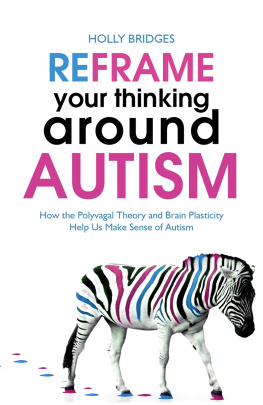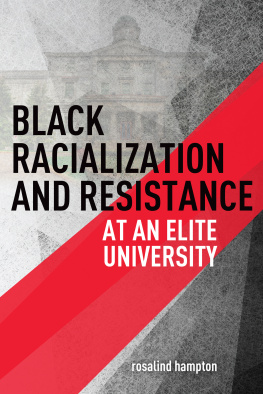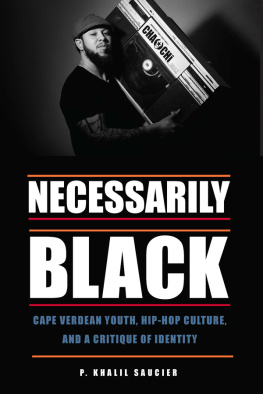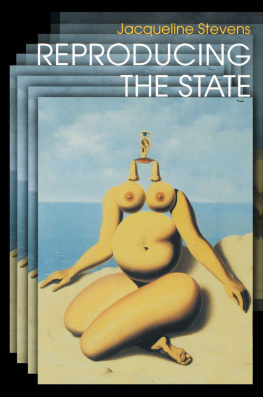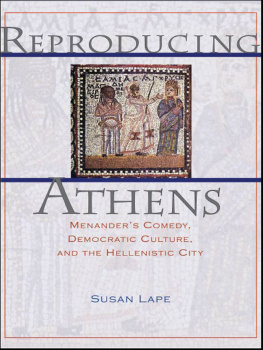Bridges - Reproducing race: an ethnography of pregnancy as a site of racialization
Here you can read online Bridges - Reproducing race: an ethnography of pregnancy as a site of racialization full text of the book (entire story) in english for free. Download pdf and epub, get meaning, cover and reviews about this ebook. City: Berkeley;New York (State);New York, year: 2011;2012, publisher: University of California Press, genre: Politics. Description of the work, (preface) as well as reviews are available. Best literature library LitArk.com created for fans of good reading and offers a wide selection of genres:
Romance novel
Science fiction
Adventure
Detective
Science
History
Home and family
Prose
Art
Politics
Computer
Non-fiction
Religion
Business
Children
Humor
Choose a favorite category and find really read worthwhile books. Enjoy immersion in the world of imagination, feel the emotions of the characters or learn something new for yourself, make an fascinating discovery.

Reproducing race: an ethnography of pregnancy as a site of racialization: summary, description and annotation
We offer to read an annotation, description, summary or preface (depends on what the author of the book "Reproducing race: an ethnography of pregnancy as a site of racialization" wrote himself). If you haven't found the necessary information about the book — write in the comments, we will try to find it.
Bridges: author's other books
Who wrote Reproducing race: an ethnography of pregnancy as a site of racialization? Find out the surname, the name of the author of the book and a list of all author's works by series.
Reproducing race: an ethnography of pregnancy as a site of racialization — read online for free the complete book (whole text) full work
Below is the text of the book, divided by pages. System saving the place of the last page read, allows you to conveniently read the book "Reproducing race: an ethnography of pregnancy as a site of racialization" online for free, without having to search again every time where you left off. Put a bookmark, and you can go to the page where you finished reading at any time.
Font size:
Interval:
Bookmark:
Reproducing Race

AN ETHNOGRAPHY OF PREGNANCY
AS A SITE OF RACIALIZATION
Khiara M. Bridges

University of California Press, one of the most distinguished university presses in the United States, enriches lives around the world by advancing scholarship in the humanities, social sciences, and natural sciences. Its activities are supported by the UC Press Foundation and by philanthropic contributions from individuals and institutions. For more information, visit www.ucpress.edu .
University of California Press
Berkeley and Los Angeles, California
University of California Press, Ltd.
London, England
2011 by The Regents of the University of California
Library of Congress Cataloging-in-Publication Data
Bridges, Khiara M.
Reproducing race : an ethnography of pregnancy as a site of racialization / Khiara M. Bridges.
p. cm.
Includes bibliographical references and index.
ISBN 978-0-520-26894-4 (hardcover : alk. paper) ISBN 978-0-520-26895-1 (paperback : alk. paper)
1. Alpha Hospital (New York, N.Y.) 2. HospitalsMaternity servicesNew York (State)New York. 3. Discrimination in medical careNew York (State)New York. 4. MinoritiesMedical careNew York (State)New York. I. Title.
[DNLM: 1. Alpha Hospital (New York, N.Y.)
2. Maternal Health ServicesstandardsNew York City. 3. Maternal Health ServicesstandardsUnited States. 4. Anthropology, CulturalNew York City. 5. Anthropology, CulturalUnited States. 6. Healthcare DisparitiesNew York City. 7. Healthcare DisparitiesUnited States. 8. Hospitals, MunicipalstandardsNew York City. 9. Hospitals, MunicipalstandardsUnited States. 10. Prenatal CareNew York City. 11. Prenatal CareUnited States. 12. Socioeconomic FactorsNew York City. 13. Socioeconomic FactorsUnited States. WA 310 AN7]
RG501.U6B75 2011
362.19'82009747dc22
2010041690
Manufactured in the United States of America
20 19 18 17 16 15 14 13 12 11
10 9 8 7 6 5 4 3 2 1
This book is printed on Cascades Enviro 100, a 100% post consumer waste, recycled, de-inked fiber. FSC recycled certified and processed chlorine free. It is acid free, Ecologo certified, and manufactured by BioGas energy.
To Clive R. Bridges and Deborah A. Bridges,
who have loved me flawlessly
PART ONE
CLASS
PART TWO
RACE
I begin by thanking the wonderful mommies and mommies-to-be who sat down with me (and my mini tape recorder) and shared their fascinating stories. I hope this work reflects at least some of the complexity and beauty of their lives. I would also like to thank the physicians, midwives, nurse practitioners, registered nurses, and other hospital staff members who let me observe them, ask them questions, and generally get in their way. I thank the four special ladies who worked at the front desk of the Alpha Womens Health Clinic; they took me into their fold and made every single day I spent in the clinic fun and interesting. Thanks are also owed to the women who helped me get approval for my research from the Omega University Institutional Review Board. My appreciation for them is in no way dulled by this requisite cloak of anonymity. I owe a debt of gratitude to Dr. Christine Johnson, the Director of Ambulatory Care at Alpha Hospital. She answered my unsolicited phone call, listened to a hasty, inarticulate description of my project, and agreed to help me realize my fieldwork. A special thanks goes to Rayna Rappan exceedingly kind individual. But for Professor Rapp, this project probably would have remained a figment of my imagination.
I would like to acknowledge the Wenner-Gren Foundation for Anthropological Research for providing me with a generous grant that supported my fieldwork, as well as the Center for Reproductive Rights (in conjunction with Columbia Law School) for the fellowship that supported me through portions of the revision process. Moreover, the process of publishing this book has been mercifully easy. Thanks to Reed Malcolm, my editor at the University of California Press, for the experience. A special heartfelt thanks goes to Stan Holwitz, who set me up for success. Thanks are also owed to John Hoberman.
I am deeply indebted to the professors who have taught me over the years. Nicholas De Genova has guided this project from its inception. I thank him for his willingness to respond to my anxiety-filled e-mails, to engage with my work, and to scribble crushingly intelligent insights in the margins of my drafts. Neni Panourgia introduced me to Foucault and shared her magnificent brilliance with me. Brinkley Messick believed I could actually write this bookeven when I was just a student in law school. Kendall Thomas sparked the desire in me to emulate him. Carol Sanger was a reliable source of advice and encouragement throughout my long journey into academia. David Leebron has had unending confidence in me. Finally, the late E. Allan Farnsworth was so much more to me than just a Contracts professor. I am grateful to them all.
I would like to thank my colleagues and friends in Columbia Universitys Department of Anthropologyspecifically Adriana Mara Garriga-Lpez, Aya Cubuku, and Danielle DiNovelli-Lang. I could always count on them for motivation and laughter.
Thanks as well to my ballet instructorsspecifically my mentor and coach, Kat Wildish, for lovingly (yet relentlessly) torturing me over the years. I am also grateful to the scores of dancers with whom I have had the pleasure of training and working. I thank them for their inspiration and for always looking really shocked and disbelieving when I told them I was also an academic. Thanks are also owed to Joe Risico, for everything.
I am ceaselessly indebted to my family. I am indebted to my grandparentsGrandma, Church Grandma, and my two Granddaddieswhose strength and perseverance are the conditions of possibility for any success I may have in this life. Thanks as well to my extended familyspecifically my Uncle J, James Bridges, for insisting in his own special way that I be exceptional. Thanks to my sister, Algeria Bridges, who has supported me since the days when we shared a mural-painted bedroom and wore matching yellow Easter dresses. I have been awed by the intellect of my brother, Khari Bridges, since the time when he used to wear the yellow suit version of my Easter dress. Finally, my love for my parents, Clive R. Bridges and Deborah A. Bridges, defies articulation. Their love and encouragement lie behind every word that I write.
Diana, Yessica, and Evelynall physician assistants, or Patient Care Associates (PCAs)are chatting in one of the nurses triage rooms during a lull in a typically chaotic day in the Alpha Womens Health Clinic. Diana, an outspoken, funny young woman of Haitian parentage who has been working for over six months in the clinic as a temporary employee, sits on an examination table and plays with the creases in her uniform. On the other side of the cramped space, touching up her carefully applied makeup, sits Yessica, thirty-five and Dominican Republic-born, who has been working at Alpha for close to five years. Evelyn, an older woman who had immigrated to the United States from Jamaica, and who has been a PCA at Alpha for over a decade, leans against a chest of drawers, arms angrily folded over her chest. Evelyn has just finished escorting a patient to the physician for her examination. The patient, in the final months of her pregnancy, had complained loudly and persistently about the long time she had waited for her appointment that day.
Next pageFont size:
Interval:
Bookmark:
Similar books «Reproducing race: an ethnography of pregnancy as a site of racialization»
Look at similar books to Reproducing race: an ethnography of pregnancy as a site of racialization. We have selected literature similar in name and meaning in the hope of providing readers with more options to find new, interesting, not yet read works.
Discussion, reviews of the book Reproducing race: an ethnography of pregnancy as a site of racialization and just readers' own opinions. Leave your comments, write what you think about the work, its meaning or the main characters. Specify what exactly you liked and what you didn't like, and why you think so.


